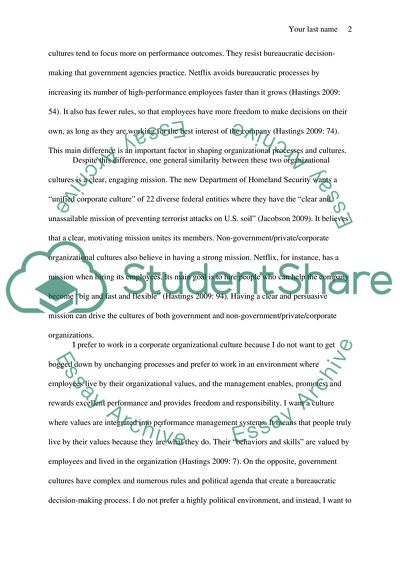Organizational Culture Differences between Government and Non-Governme Essay - 3. Retrieved from https://studentshare.org/social-science/1696514-can-the-writer-help-me-decide
Organizational Culture Differences Between Government and Non-Governme Essay - 3. https://studentshare.org/social-science/1696514-can-the-writer-help-me-decide.


